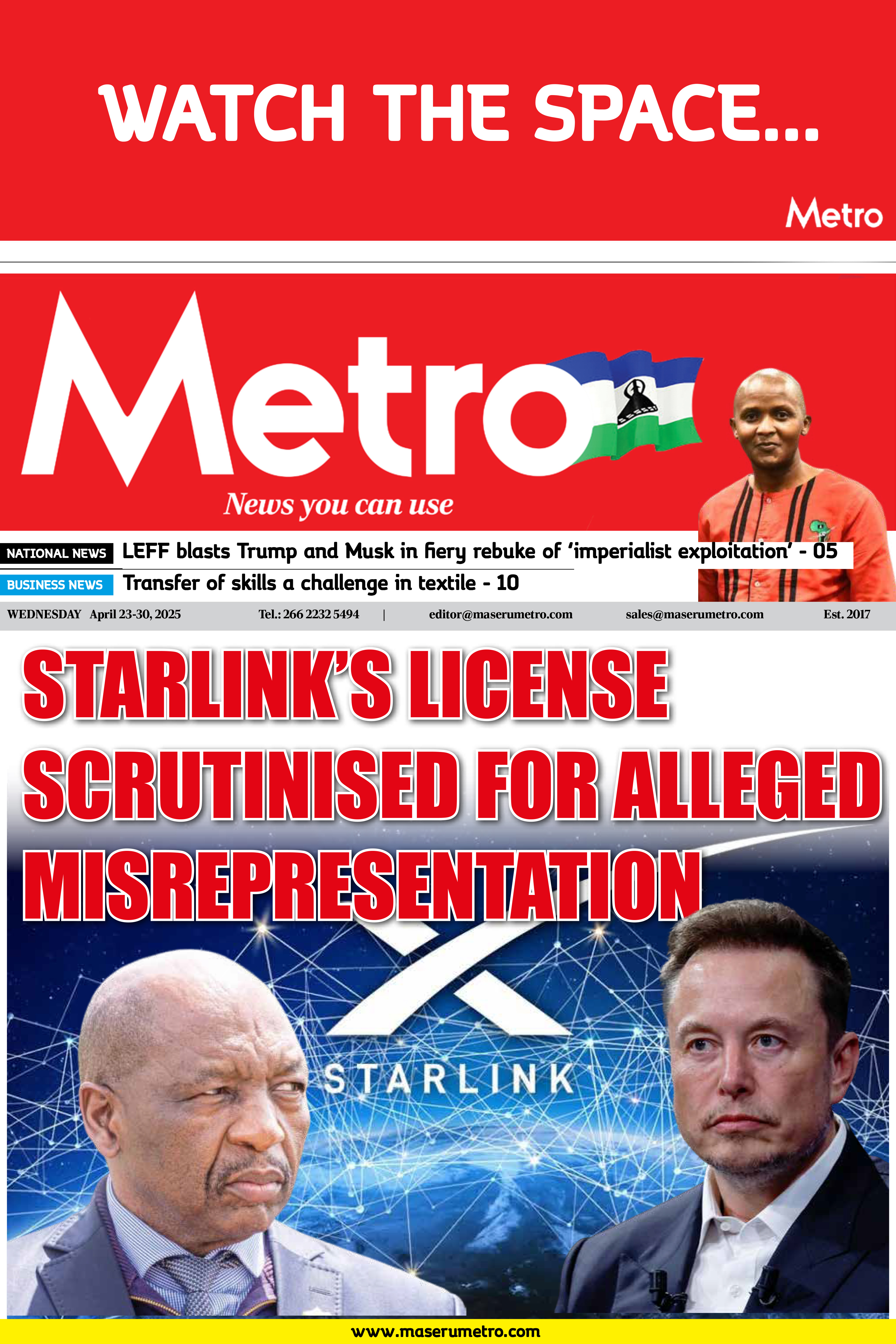THANKS to multiple trainings provided by the Central Bank of Lesotho (CBL) to the merchants, regional commercial banks, and border control organisations that rejected them, the commotion brought on by bleached South African bank notes that circulated in Lesotho a few weeks ago is set to come to a stop.
business
April 20, 2023
NEO SENOKO
2 min read
CBL moves to end ruckus over bleached SA bank notes

South African R100 notes
Story highlights
Network administrators and government organisations received comparable instruction on how to use UV light detectors to find bleached notes.
The CBL previously alerted the public to the discovery of bleached South African rands in circulation, which were thought to be the result of illicit activity in South Africa. Because of the notification's impact on public anxiety, some businesses decided not to take SA bank notes.
The South African rand, which is recognised as legal tender in Lesotho, should continue to be used widely, according to the Bank. The Bank commends the commercial banks, companies, and other governmental bodies that bought the UV light devices in response to the need for them to be used to identify the bleached notes. The CBL disclosed this week that various trainings had been provided to the majority of the business community in an effort to resolve the controversy surrounding the South African Bank notes. This is especially significant because a large number of other merchants continue to refuse to accept South African bank notes in spite of the CBL warning.
“The Bank hereby updates the public that in addition to its awareness efforts, it has undertaken numerous training activities at the request of retailers, banks, border agencies, mobile network operators and government agencies around the use of UV light devices to detect bleached notes.
Enjoy our daily newsletter from today
Access exclusive newsletters, along with previews of new media releases.
“The Bank reiterates that the South African Rand is a legal tender in Lesotho underpinned by the Common Monetary Area (CMA) agreement and should continue to enjoy universal acceptance,” The CBL said this week following the training programmes offered.
Nevertheless, despite these trainings, some retail establishments are still hesitant to accept South African Bank notes, particularly M100 bank notes, on the grounds that they are difficult to identify and were disproportionately impacted by the sad incident.
On the other hand, some customers feel that the CBL should do more to spread information about the occurrence and make sure that no retailers are refusing to accept any kind of South African bank notes.






